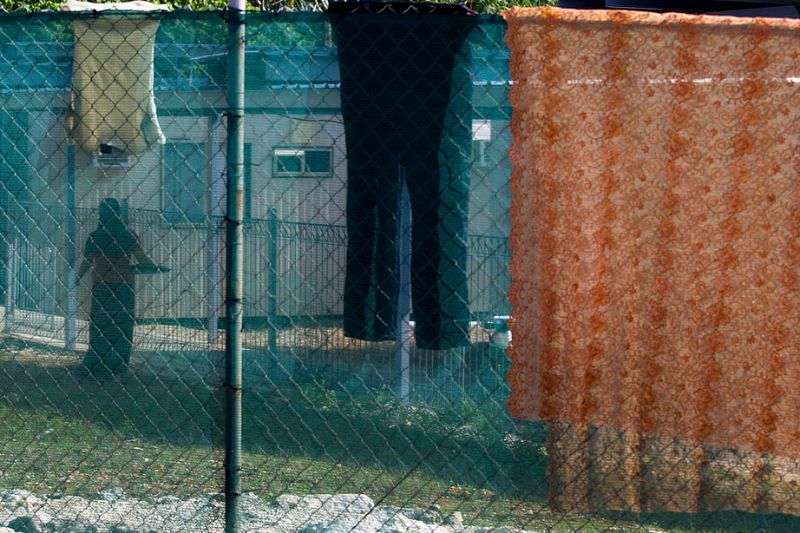Refugees are in the news again. The arrival of a couple of boats in Western Australia stirred politicians to exchange blame. In the meantime, the people who arrived by boat were sent off shore to Nauru. This followed a recent inquiry conducted by former ASIO director general and Defence chief Dennis Richardson on the appointment of allegedly corrupt businesses to manage the facilities in Papua New Guinea, Australia’s other offshore destination for people who seek protection. It makes sobering reading. The findings excoriate processes but do not find ministers, politicians or departmental heads responsible for their failures. Nor are any officials found blameworthy for failing to communicate or to receive communication.

The Report, however, confines its ethical scope to corruption in economic relationships — using influence fraudulently to seek private pecuniary gain from the public purse. That limited view was written into the guidelines of the investigation. It consequently failed to enter the wider ethical issues involved in the treatment of the persons for whom the Ministers, the Government Departments and their subcontractors are responsible.
These questions hang over the despatch to Nauru of the most recent boat arrivals. If the treatment of persons is unethical, it will inevitably lead to ethical corruption in the people and the institutions involved in administering it. They will be blind to the effects of what they plan and administer on its victims, whose welfare they have made subordinate to the efficient working of their unethical policy. That will inevitably lead to further ethical corruption. It is not surprising, then, that no one from Ministers down showed any interest in signs of economic corruption.
The ethical failure of Australian refugee policy flowed from the indefinite detention of people who came to Australia to seek protection. From the beginning, this was advocated for on the grounds that it would deter other would-be applicants. Initially spruiked by politicians but denied by Ministers because it was excluded by the Courts, this argument became explicit in the treatment of people seeking protection after Tampa, It was then systematically enshrined in the introduction of off-shore detention on Nauru and Manus Island. The heart of the policy lay in inflicting pain and suffering on one group of human beings as a means of deterring others. Both the principle and its outworking lacked the respect due to each human being independent of their wealth, race and origin, which lies at the heart of any justifiable ethical and legal framework. In the policy of deterrence doubtful ends were taken to justify harmful means.
It is almost impossible to participate in a policy that is based on such unethical premises without being complicit in it. If we do participate, we become at least partially blinded to what we human beings owe to one another by virtue of being human. We shall justify ourselves either by regarding the persons on whom share responsibility for inflicting pain as an abstraction, or by seeing them as less human and so as less deserving. We shall not look them in the face.
In No Friend but the Mountains, Behrouz Bouchani describes the way in which the policy of deterrence played out in its planning and administration relationships on Manus Island. The dehumanising treatment of people and its infantilising effects on many already vulnerable men provided proof to those guarding and presiding over them of their lesser and so underserving humanity.
'If the treatment of persons is unethical, it will inevitably lead to ethical corruption in the people and the institutions involved in administering it.'
In the Immigration Department and its progressively more bellicose re-nameings and re-shapings, it resulted in an adamantine attachment to the doctrine of deterrence despite the lack of evidence for its need and justification of its cost. It was also reflected in a host of vindictive regulations and deprivations, all conceived of as deterrence and experienced as humiliation.
Notable in the Richardson report is any reference to the persons who might be affected by the appointment of contractors. That is understandable in discussion of a contract that effectively mothballs the installations in PNG. As the arrival of the boats off the Western Australian Coast reminds us, however, all the legislative and managerial machinery is in place to use them and similar facilities on Nauru again if desired. The choice of a firm responsible for finding staff would be central in setting the tone of such facilities. Yet the only mention in the Richardson report to ethical relationships has to do with economic considerations. It suggests that the relationships of the Department and its agents to the persons under their care are to be understood in terms of Clough’s take on the nineteenth century interpretation of the Ten Commandments.
Thou shalt not kill, but need’st not strive
Officiously to keep alive.
(In Clough’s usage ‘officiously’ means that keeping alive is not part of your official responsibility, not that you pursue it too zealously).
In organisations built around such unethical principles as deterrence, ethical corruption expands into their internal processes and structures. It controls who needs to know, whom they recruit, and how they conduct their business. The ethical behaviour of agencies commissioned to administer programs will not be seen as relevant. Nor will the health and welfare of the persons detained be a high priority within a policy based on deterrence. In fact, the more they suffer, the more effective will be the deterrence.
In the case of the people currently being sent to Nauru, the fruit of the policy in mental and physical illness is predictable. It is time for a policy less corrosive of the health of its victims and of the ethical framework of governance.
Andrew Hamilton is consulting editor of Eureka Street, and writer at Jesuit Social Services.
Main image: (Paula Bronstein/Getty Images)